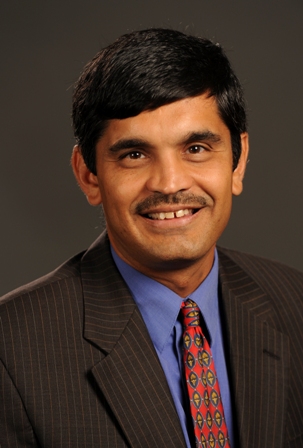Dr. Chandra Bhat, P.E. (University of Texas at Austin)

Join NCTSPM for this Transportation Speaker Series event, featuring Dr. Chandra Bhat, P.E., Director of the Center for Transportation Research, University Distinguished Teaching Professor, and Adnan Abou-Ayyash Centennial Professor in Transportation Engineering at the University of Texas at Austin. Dr. Bhat will be speaking on the topic of "Capturing Cause-Effect Relationships in Multidimensional Integrated Models: A New Econometric Approach with Application to Residential, Auto Ownership, and Activity Choices".
The interest in integrated model systems has been spurred by the recent availability of high-dimensional heterogeneous data with complex dependence structures, thanks to technology that allows the collection and archival of voluminous amounts of data (“big data”). Unlike standard correlated linear data that can be analyzed using traditional multivariate linear regression models, the presence of non-commensurate outcomes creates difficulty because of the absence of a convenient multivariate distribution to jointly (and directly) represent the relationship between discrete and continuous outcomes. This presentation will discuss a generalized heterogeneous data model (GHDM) that jointly handles mixed types of dependent variables, including multiple discrete-continuous (MDC) outcomes, nominal outcomes, ordinal variables, count variables, and continuous variables, by representing the covariance relationships among them through a reduced number of latent factors. The maximum approximate composite marginal likelihood (MACML) method will be discussed to estimate this jointly mixed model system, along with an application to examine residential self-selection in the context of an activity-based modeling (ABM) paradigm. In particular, we jointly model residential location-related choices (density of residential location and commute distance), along with auto ownership and activity time-use, in a way that has a social-psychological underpinning through latent variables while also explicitly considering residential self-selection issues. Our results support the presence of self-selection effects (endogeneity), and suggest that modeling the different choice processes independently does not capture true relationships that exist across the choice dimensions. This is also evidenced in the treatment effect measures, which emphasize that accounting for residential self-selection effects are not simply esoteric econometric pursuits, but can have important implications for land-use policy measures that focus on neo-urbanist design.
From a methodological standpoint, we hope that the elegant way of tying the mixed types of dependent variables, including an MDC variable, through a parsimonious latent structure approach will open new doors in the exploration of the nexus between land use and activity-based travel modeling, as well as contribute to empirical research in many other fields where MDC variables occur frequently.
Dr. Chandra R. Bhat is the Director of the Center for Transportation Research (CTR) and the Adnan Abou-Ayyash Centennial Professor in Transportation Engineering at The University of Texas at Austin, where he has a joint appointment between the Department of Civil, Architectural and Environmental Engineering (CAEE) and the Department of Economics. Substantively, Bhat has contributed to the area of transportation and urban policy design, with far reaching implications for public health, energy dependence, greenhouse gas emissions, and societal quality of life. Methodologically, he has been a pioneer in the formulation and use of statistical and econometric methods to analyze human choice behavior.
Theme by Danetsoft and Danang Probo Sayekti inspired by Maksimer
